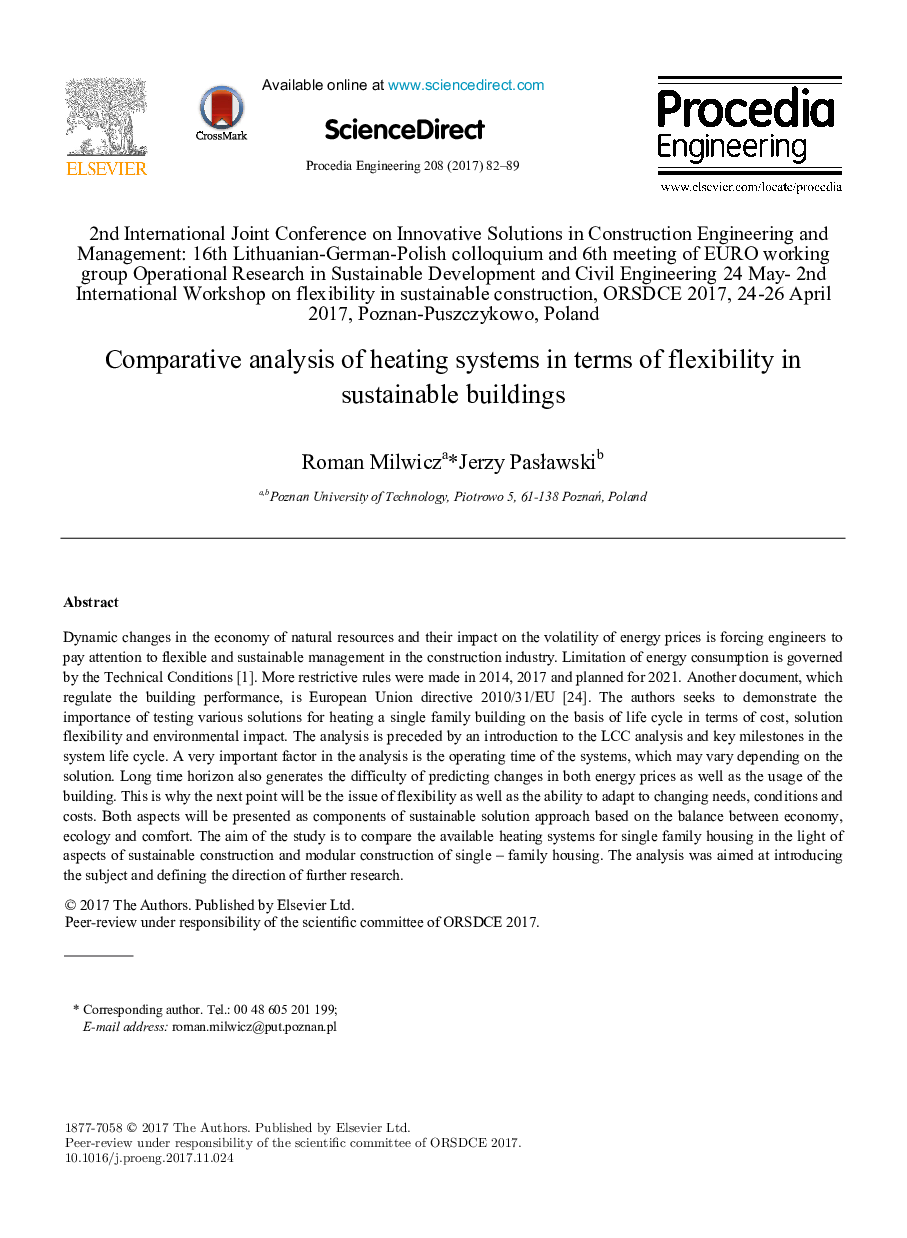| Article ID | Journal | Published Year | Pages | File Type |
|---|---|---|---|---|
| 7226951 | Procedia Engineering | 2017 | 8 Pages |
Abstract
Dynamic changes in the economy of natural resources and their impact on the volatility of energy prices is forcing engineers to pay attention to flexible and sustainable management in the construction industry. Limitation of energy consumption is governed by the Technical Conditions [1]. More restrictive rules were made in 2014, 2017 and planned for 2021. Another document, which regulate the building performance, is European Union directive 2010/31/EU [24]. The authors seeks to demonstrate the importance of testing various solutions for heating a single family building on the basis of life cycle in terms of cost, solution flexibility and environmental impact. The analysis is preceded by an introduction to the LCC analysis and key milestones in the system life cycle. A very important factor in the analysis is the operating time of the systems, which may vary depending on the solution. Long time horizon also generates the difficulty of predicting changes in both energy prices as well as the usage of the building. This is why the next point will be the issue of flexibility as well as the ability to adapt to changing needs, conditions and costs. Both aspects will be presented as components of sustainable solution approach based on the balance between economy, ecology and comfort. The aim of the study is to compare the available heating systems for single family housing in the light of aspects of sustainable construction and modular construction of single - family housing. The analysis was aimed at introducing the subject and defining the direction of further research.
Related Topics
Physical Sciences and Engineering
Engineering
Engineering (General)
Authors
Roman Milwicz, Jerzy PasÅawski,
